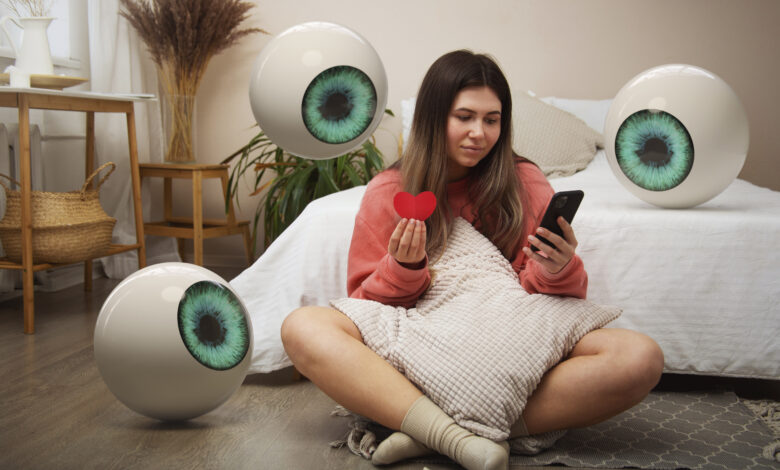Why Sleeping in Contacts May Endanger Your Eyes

Wearing contact lenses has become a convenient and popular alternative to glasses, offering enhanced vision without compromising on style or comfort. However, while contacts are generally safe when used as directed, sleeping in them can pose serious risks to your eye health. Despite the convenience of leaving your lenses in overnight, the potential dangers far outweigh the benefits. In this article, we delve into why sleeping in contact lenses is harmful, the risks involved, and how to maintain optimal eye health as a contact lens user.
The Importance of Oxygen for Your Eyes
Your eyes rely on oxygen to stay healthy and function properly. Contact lenses, especially those not designed for extended wear, act as a barrier that limits the oxygen reaching your cornea. During the day, blinking facilitates oxygen flow and removes debris. However, when you sleep with lenses in, this process is hindered, further reducing oxygen levels. This hypoxia, or oxygen deficiency, can lead to various complications, from mild discomfort to severe infections.
Increased Risk of Eye Infections
Sleeping in contact lenses significantly raises the risk of developing eye infections, particularly microbial keratitis—a condition caused by bacteria, fungi, or parasites. According to studies, people who sleep in their lenses are up to six times more likely to develop such infections.
Why is this risk so high? During sleep, your eyes are closed, creating a warm, moist environment ideal for bacteria and other microorganisms to thrive. Contacts, especially when worn overnight, can trap these harmful agents against the eye, increasing the likelihood of infection.
Corneal Ulcers: A Serious Concern
One of the most alarming risks of sleeping in contacts is the development of corneal ulcers. These open sores on the cornea can cause severe pain, redness, and sensitivity to light. Left untreated, corneal ulcers can lead to permanent scarring and even vision loss. The risk is particularly heightened when improper lens hygiene compounds the issue.
Dryness and Irritation
Sleeping in contact lenses can lead to dryness and irritation. The reduced oxygen flow and lack of blinking during sleep cause the lenses to dry out, sticking to your cornea. This not only feels uncomfortable but can also make lens removal difficult and increase the risk of corneal abrasions. Chronic irritation can also result in long-term sensitivity or discomfort with lens use.
Giant Papillary Conjunctivitis (GPC)
Prolonged wear of contact lenses, especially overnight, can contribute to giant papillary conjunctivitis, a condition characterized by inflammation on the inner eyelids. Symptoms include itching, redness, and the sensation of a foreign body in the eye. GPC is particularly problematic for lens wearers, as it can force individuals to stop using contacts altogether.
Extended-Wear Lenses Are Not Always Risk-Free
Some lenses are marketed as “extended wear,” claiming they are safe for overnight use. While these lenses are made of materials designed to allow more oxygen to reach the cornea, they are not entirely risk-free. The likelihood of infections and other complications still increases with prolonged wear. Always consult your eye care professional before considering extended-wear lenses and adhere strictly to their recommendations.
How to Protect Your Eyes
To minimize risks and maintain healthy eyes while using contact lenses, follow these essential tips:
- Remove Your Lenses Before Sleeping: No matter how tired you feel, make it a habit to remove your contacts before bed. This simple step significantly reduces the risk of infections and other complications.
- Practice Proper Hygiene: Wash your hands thoroughly before handling your lenses. Clean and store them using the appropriate solution, never water or saliva, which can introduce harmful bacteria.
- Replace Lenses as Directed: Adhere to the replacement schedule recommended by your eye care professional. Overusing lenses increases the risk of deposits and microbial growth.
- Schedule Regular Eye Exams: Visit your optometrist regularly to ensure your eyes remain healthy and that your prescription is up to date.
- Avoid Water Exposure: Avoid wearing lenses while swimming, showering, or using a hot tub, as water can harbor harmful microorganisms.
When to Seek Medical Attention
If you experience redness, pain, sensitivity to light, blurred vision, or discharge from the eyes, remove your lenses immediately and consult an eye care professional. Early intervention can prevent minor issues from escalating into serious complications.
Final Thoughts
While contact lenses offer convenience and enhanced vision, they require diligent care and attention to ensure your eyes stay healthy. Sleeping in contacts, even occasionally, can expose you to a range of risks, from mild irritation to severe infections and vision-threatening conditions. Prioritizing good lens hygiene and following the recommendations of your eye care professional will help you enjoy the benefits of contact lenses without compromising your eye health.
Remember, your eyes are irreplaceable—treat them with the care they deserve.




